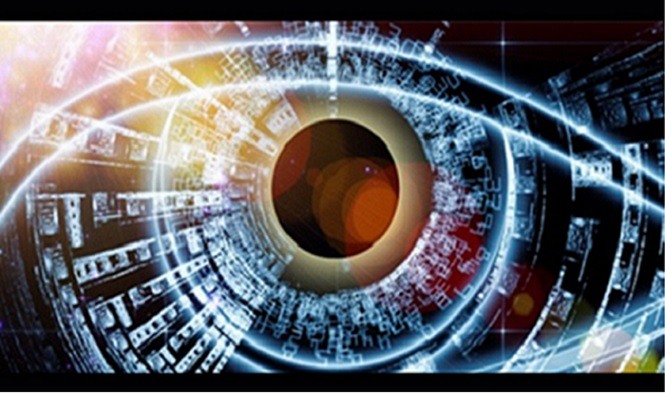
Technologies like Artificial Intelligence (AI), that once seemed like something that would take ages to develop, are gradually moving into the mainstream and making a noticeable impact in several industries, besides also significantly impacting our society.
What is Artificial intelligence?
Move over spread-sheet warriors, artificial intelligence (AI) is here. In an increasingly digitised economy, managing requires more than simple number crunching. The connected world is producing a lot of data for humans to handle and AI is becoming a necessity for managing business and innovation. Inevitably, managers must learn to work with AI in order to perform in the new world.
GET INSTANT HELP FROM EXPERTS!
- Looking for any kind of help on your academic work (essay, assignment, project)?
- Want us to review, proofread or tidy up your work?
- Want a helping hand so that you can focus on the more important tasks?
Hire us as project guide/assistant. Contact us for more information
Connected computing and communication devices have become ubiquitous; a vast majority of humanity has already become independent on digital devices, services and everybody is creating vast data footprints. According to Google’s Sundar Pichai, AI will do more for humanity than what fire or electricity have done. So, no manager can do without some AI knowledge or skills.
AI is the simulation of human intelligence processes by machines, especially computer systems. It is the ability of a digital computer or computer-controlled robot to perform tasks that are commonly associated only with intelligent beings. The aim is to build machines that can reason, learn, and act intelligently.
AI is essentially about using machines to learn from raw information and automating actions and predictions. Broadly, there are two levels of machine intelligence – machine learning and deep learning – and today’s managers need to understand how to apply either or both.
Machine learning involves creating algorithms that can turn raw data into patterns, predictions and prescriptions. The most common applications of machine learning are recommendations made by digital services to customers based on their expressed interest and past consumption. Deep learning is about creating a network of algorithms to process greater volume and variety of data and solve more complex problems. It is being applied in face recognition, diagnosing diseases, controlling driver-less cars, etc.
AI is also changing the way people experience business and products. Augmented reality (AR), a branch of AI, is enabling digitally-assisted performance of complex tasks, such as face recognition, product trials, translation and autonomous driving.
Progress made in Artificial intelligence?
While many believe that artificial intelligence is the future, a closer look at the ground reality reveals that it’s already in-use; commendable progress has been made, although a lot still needs to be achieved.
For a long-time people believed that a fully-working AI was either science fiction, or something that would take centuries before it became a reality. Some experts still feel that human-level AI is centuries away despite the progress that has been made in this field. However, thanks to recent breakthroughs, some important AI milestones, which experts believed were decades away merely few years ago, have now been reached.
Artificial Intelligence: Concerns
Lot of experts now seriously take the possibility of super-intelligence in our lifetime. In fact, some AI researches say that it could happen in the next few decades, prompting the likes of Elon Musk, Steve Wozniak, Stephen Hawking, Bill Gates, and many other big names in science and technology to express concern in the media about the risks posed by AI, joined by many leading AI researchers.
Lot of people are talking about artificial intelligence (AI) but it is also a very poorly understood concept.
It seems, as of now, very few people really understand Artificial Intelligence and its real capabilities, even the so-called experts. There are lot of problems that can be solved by technologies that already exist and doesn’t really require the use of Artificial Intelligence.
There are very few who truly understand the concept and the real capabilities of AI. A lot of so-called experts do not have a clear understanding of AI and they incorrectly label various functionalities as AI whereas the fact is most of those functionalities can be implemented using other technologies without requiring any knowledge of Artificial Intelligence.
Despite the concerns, AI enabled devices and services are making its way in several areas, and it is only likely to grow from here. However, there seems to be a need for an international forum where people could come together, truly understand the capabilities, talk about the various concerns, decide on standards and discuss ethical ways to progress AI; it is something that will benefit the overall community. Issues, such as responsibility and liability, security and safety of AI-driven decision-making, raise many questions that need to be addressed in the near future.
Artificial intelligence today plays an increasingly important role in our lives and economy and is already having an impact on our world in many different ways. Today, the role of artificial intelligence tools and techniques in business and the global economy is considered a hot topic given that AI might bring in radical changes in the way people live and work. While the AI revolution started decades back, most of its economic impact is yet to be experienced.
Automation capability of AI is scaring a lot of people, but its adoption can happen only when society sees tangible benefits from it, writes academician.
Useful Links
StudyMumbai.com is an educational resource for students, parents, and teachers, with special focus on Mumbai. Our staff includes educators with several years of experience. Our mission is to simplify learning and to provide free education. Read more about us.

Leave a Reply
You must be logged in to post a comment.